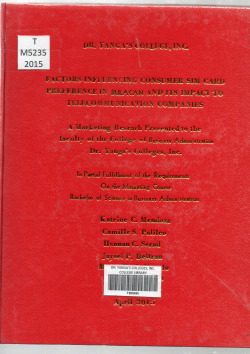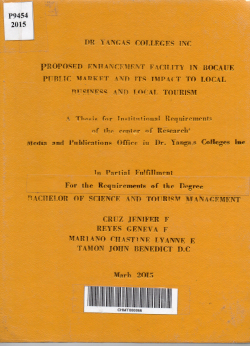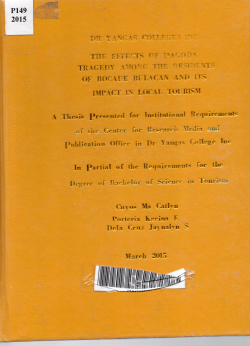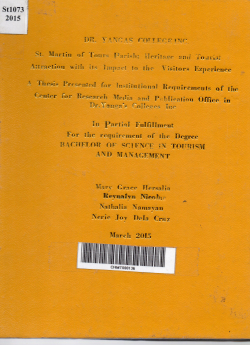HALAL FOOD MARKET: NON-MUSLIM BEHAVIORAL AGREEMENT AND ITS IMPACTS TO THE INTEGRATED MARKETING COMMUNICATIONS ACTIVITIES OF HALAL FOOD BUSINESSES IN METRO MANiLA
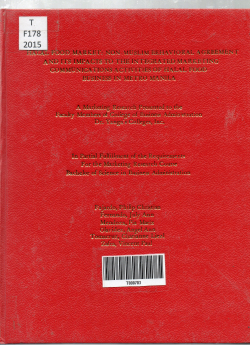
Type
Thesis
Authors
Category
CBA
[ Browse Items ]
Subject
Halal
Abstract
With core trademarks of cleanliness and quality, the Halal cuisine has become one of the global trends in the food industry today catering both the Muslim and Non-Muslim populace. Here in the Philippines, where Muslims are only of little percentage, it is uncertain if the Halal market would play a big spot on the consumers’ preferences. It then became the motIvation of the researchers to determine the behavioral agreement of the Non-Muslim Filipino consumers, as the market which represents a larger number of possible customers, regarding Halal foods. In addition, the researchers would also like to know its impacts to the Integrated Marketing Communications activities of Halal Food businesses in Metro Manila. In accumulating enough data, the researchers utilized a two- phase process. The first phase involved the identification of the behavioural agreement among Non-Muslims in factors of attitude, subjective norms and perceived behavioural control (based on the Theory of Planned Behaviour). The researchers adopted the questionnaire of Omar et al (2012). Cronbach’s Alpha of the questionnaire is at 0.76. The researchers then, distributed 200 survey questionnaires on six Halal restaurants found in Ermita and Quiapo. Consequently, the second phase involved the identification of impacts entailed by the Non-Muslim behavioural agreement to the Integrated Marketing Communication activities of the Halal food businesses namely: packaging, sales promotion, publicity, media advertising, and special events. In this phase, the researchers conducted interviews with open-ended questions to the 6 Halal food business owners. Research findings were as follows: the largest percentages of respondents according to their profile are: males (52%), ages 31-40 (31%), Catholics (78%)-and level of income ranging from 9,001 to 12,000 (27%). As per the three factors concerning the Theory of Planned Behavior namely; Attitude, Subjective Norms and Perceived Behavioral Control, respondents have a positive agreement on all with grand means of 2.64 (Agree), 2.54 (Agree) and 2.61(Agree) respectively. In terms of religion, the analysis of variance (ANOVA) had the following values: With the F critical value at 2.15 and F computed value at 1.13; it is shown that there is no significant differenceamong religious viewpoints when it comes to their Behavioural agreement toward Halal food market.
Thus, the researchers found out that regardless of their religion, Non-Muslim consumers agreed to have Halal products on their everyday living. For business owners, they tend to focused on ensuring the ‘Halalness’ of their food products. They follow religious procedures in order to exemplify the expected quality and cleanliness that is within the Halal foods. As to how the Halal food businesses focus their attention more on this aspect, they, however, provide not much attention on their other Integrated Marketing Communications activities, especially on their sales promotion, media advertising, publicity, public relations and special events. The researchers therefore, believe that through educating first the Filipino community and by developing various marketing avenues of different Halal organizations in the Philippines, the Halal industry in the country- with respect to its different aspects- will be far better than what it is today.
Thus, the researchers found out that regardless of their religion, Non-Muslim consumers agreed to have Halal products on their everyday living. For business owners, they tend to focused on ensuring the ‘Halalness’ of their food products. They follow religious procedures in order to exemplify the expected quality and cleanliness that is within the Halal foods. As to how the Halal food businesses focus their attention more on this aspect, they, however, provide not much attention on their other Integrated Marketing Communications activities, especially on their sales promotion, media advertising, publicity, public relations and special events. The researchers therefore, believe that through educating first the Filipino community and by developing various marketing avenues of different Halal organizations in the Philippines, the Halal industry in the country- with respect to its different aspects- will be far better than what it is today.
Number of Copies
1
| Library | Accession No | Call No | Copy No | Edition | Location | Availability |
|---|---|---|---|---|---|---|
| Main | 581 | T F178 2015 | 1 | Yes |
